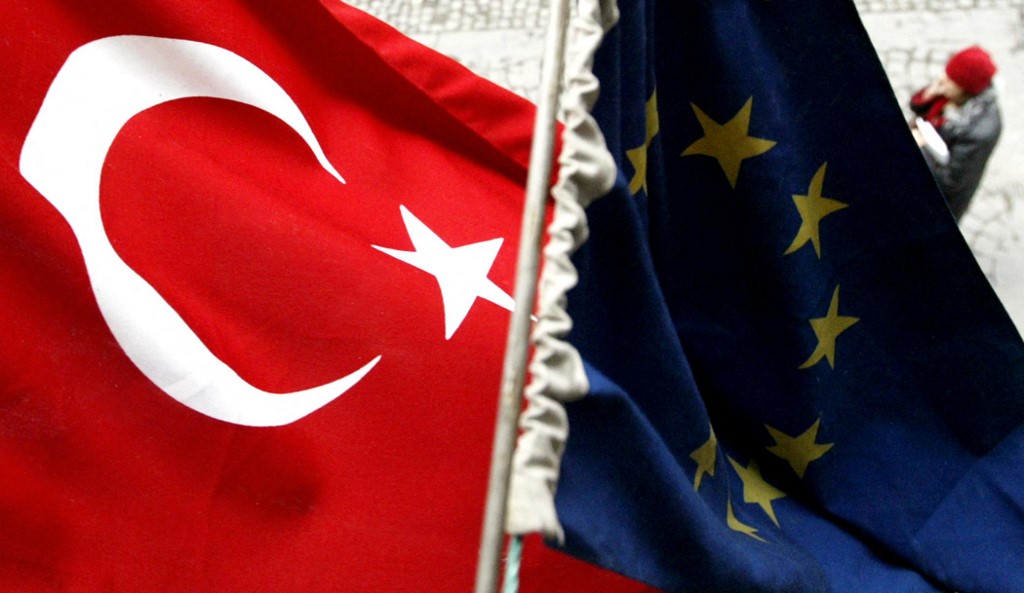The European Commission in its yearly report on Turkey released on Tuesday said backsliding in the respect for democracy, human and fundamental rights and the Turkish judicial system continued, underlining serious deficiencies in the functioning of the country’s democratic institutions, the Stockholm Center for Freedom reported.
According to the commission’s 2021 Report on Turkey, the Turkish parliament lacked the necessary means to hold the government accountable during the reporting period, and Turkey’s constitutional architecture continued to centralize powers at the level of the presidency without ensuring a sound and effective separation of powers.
The Turkish government on Tuesday rejected some of the findings and accused the EU of applying “double standards.”
The report said certain legal provisions granting extraordinary powers to government authorities and retaining several restrictive elements from the rules of a state of emergency that was declared by the Turkish government in July 2016 after an abortive coup and continued for two years remained integrated in the law, which continued to have a significant impact on democracy and fundamental rights.
According to the report concerns over the systemic lack of independence of the judiciary and undue pressure on judges and prosecutors remained, and none of the judges or prosecutors dismissed following the coup attempt were reinstated despite their acquittal.
“The Inquiry Commission on the State of Emergency has not yet finalised examining its caseload concerning the public servants who were dismissed by decree during the emergency rule,” the commission said.
After the coup attempt, the Turkish government carried out a massive purge of state institutions under the pretext of an anti-coup fight. More than 130,000 public servants, including 4,156 judges and prosecutors, as well as 29,444 members of the armed forces were summarily removed from their jobs for alleged membership in or relationships with “terrorist organizations” by emergency decree-laws subject to neither judicial nor parliamentary scrutiny.
Turkey maintained the structural deficiencies of the presidential system during the reporting period, it said, accusing the country of ignoring key recommendations of the Council of Europe and its bodies.
The commission reminded that the chief public prosecutor of the Court of Cassation is seeking to close down the pro-Kurdish Peoples’ Democratic Party (HDP), the second largest opposition party in parliament, “which contributed to weakening political pluralism in Turkey.”
According to the report the pressure on mayors from opposition parties by the government further weakened local democracy, and some 4,000 members and officials of the HDP remain in prison, including a number of lawmakers.
Although the legal framework includes guarantees of respect for human rights, legislation and practice in Turkey still need to be brought in line with the European Convention on Human Rights (ECHR) and European Court of Human Rights (ECtHR) case law. The government continues imposing broad-scale restrictions on the activities of journalists, writers, lawyers, academics and human rights defenders, it said.
“Turkey’s refusal to implement ECtHR rulings, notably in the cases of Selahattin Demirtaş and Osman Kavala, further increased concerns regarding the judiciary’s adherence to international and European standards,” the report said, adding that Ankara’s withdrawal from the Istanbul Convention also put into question its commitment to such standards.
Arrested on November 4, 2016, on terrorism-related charges, Demirtaş has since then remained in prison despite two ECtHR rulings in 2018 and 2020 that said he was imprisoned for “political” reasons and not for “legal” reasons, ordering his “immediate release.”
Kavala has been in jail since his arrest in 2017, facing myriad shifting charges linked to protests in 2013 and a 2016 attempted coup. He remains behind bars despite six decisions and one interim resolution by the Council of Europe’s (CoE) Committee of Ministers. The ECtHR ruled in December 2019 that the prolonged pre-trial detention of Kavala was in violation of the ECHR and demanded his immediate release.
On March 20 President Recep Tayyip Erdoğan issued a decree withdrawing Turkey from the CoE Convention on preventing and combating violence against women and domestic violence, better known as the Istanbul Convention, an international accord designed to protect women’s rights and prevent domestic violence in societies, sparking outrage in Turkey and the international community.
“Civil society faced continuous pressure and their space to operate freely has continued to diminish limiting their freedom of expression and freedom of association,” the report said.
Turkey and the EU began membership talks in 2005, but the process has come to a standstill in recent years. Countries aspiring to become members must align their laws and legislation in 35 policy areas, or negotiating chapters. EU leaders agreed in 2018 that no new chapters in Turkey’s accession negotiations should be opened or closed.
